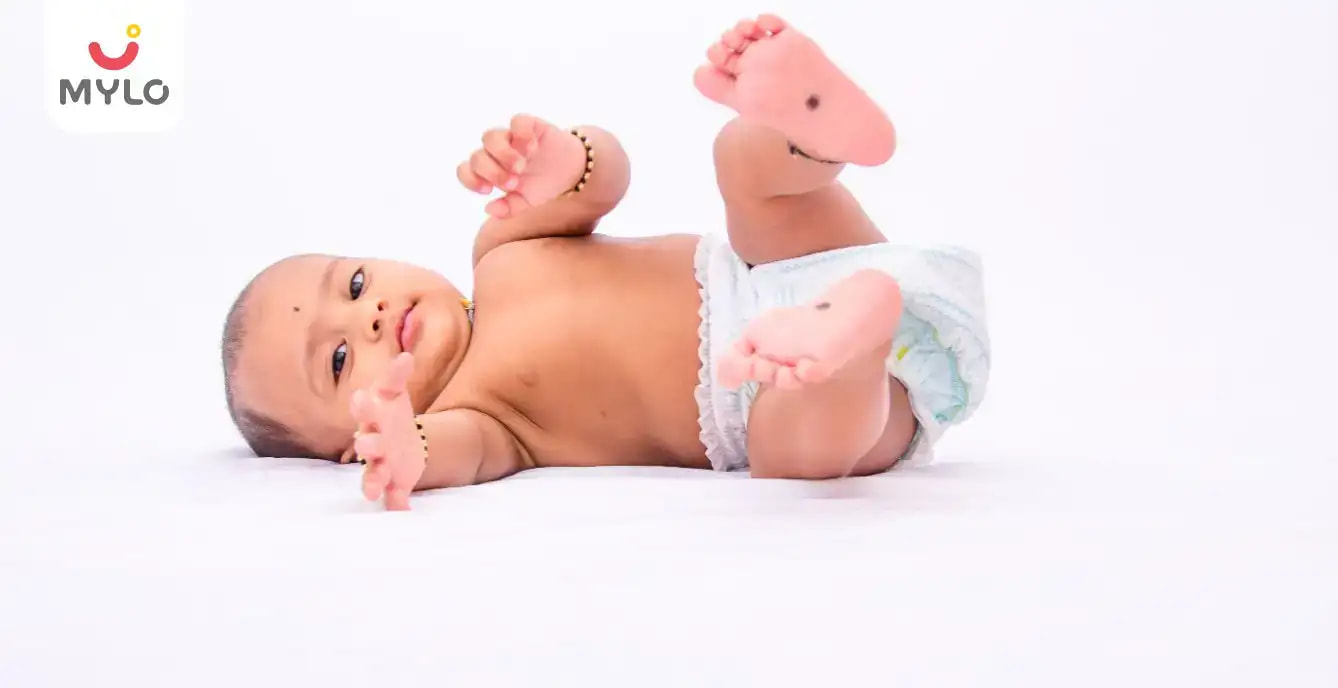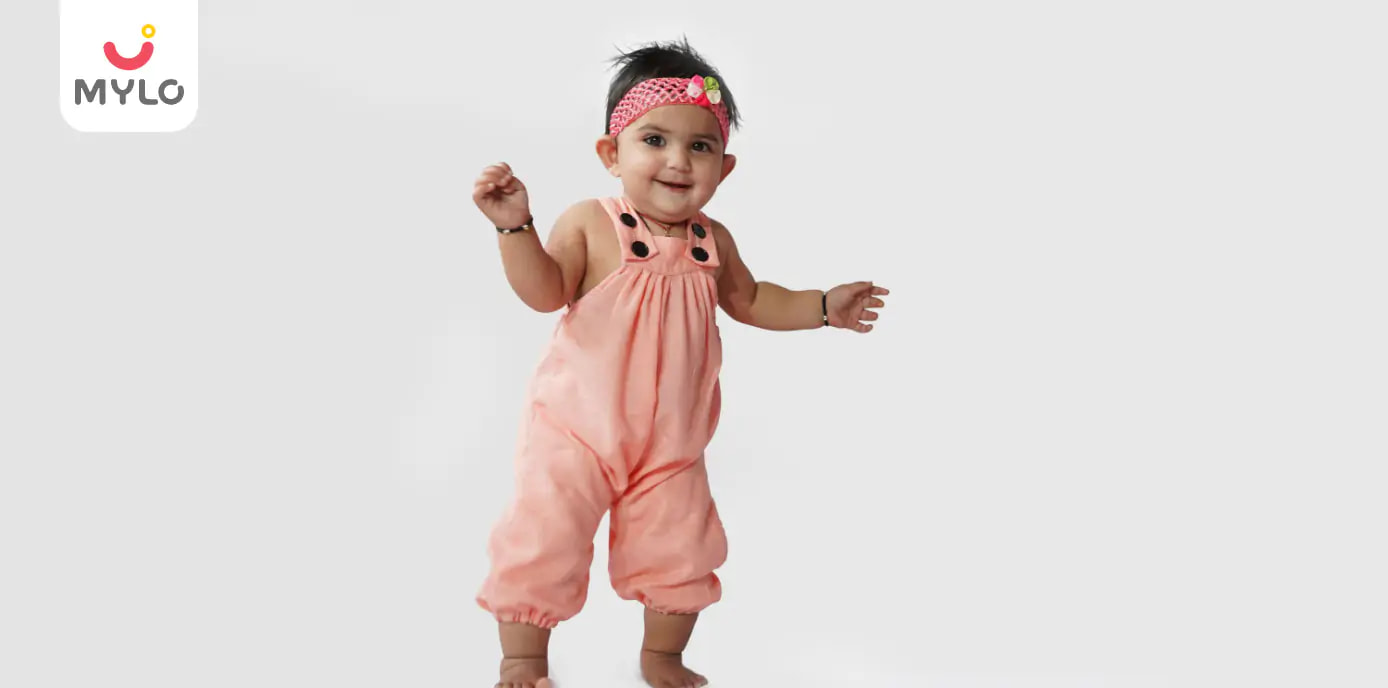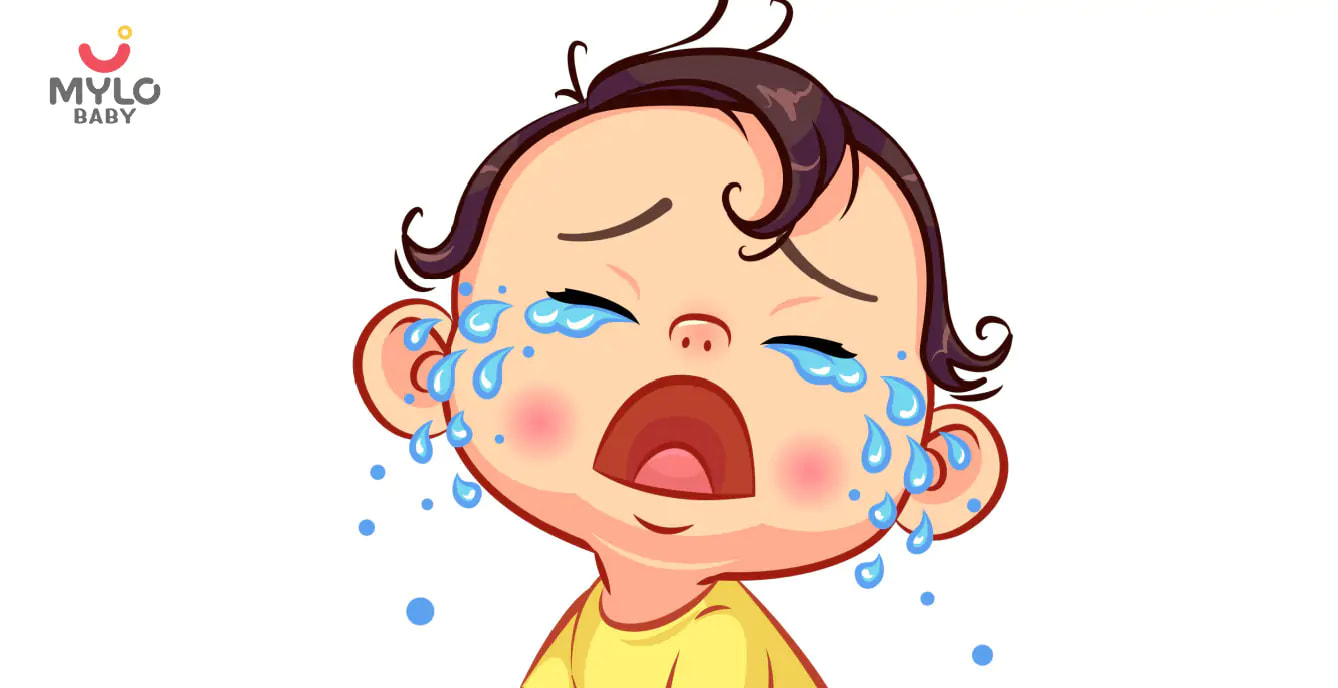Home

Growth Charts

Baby Milestones for Development, Growth & Health in the First Year
In this Article
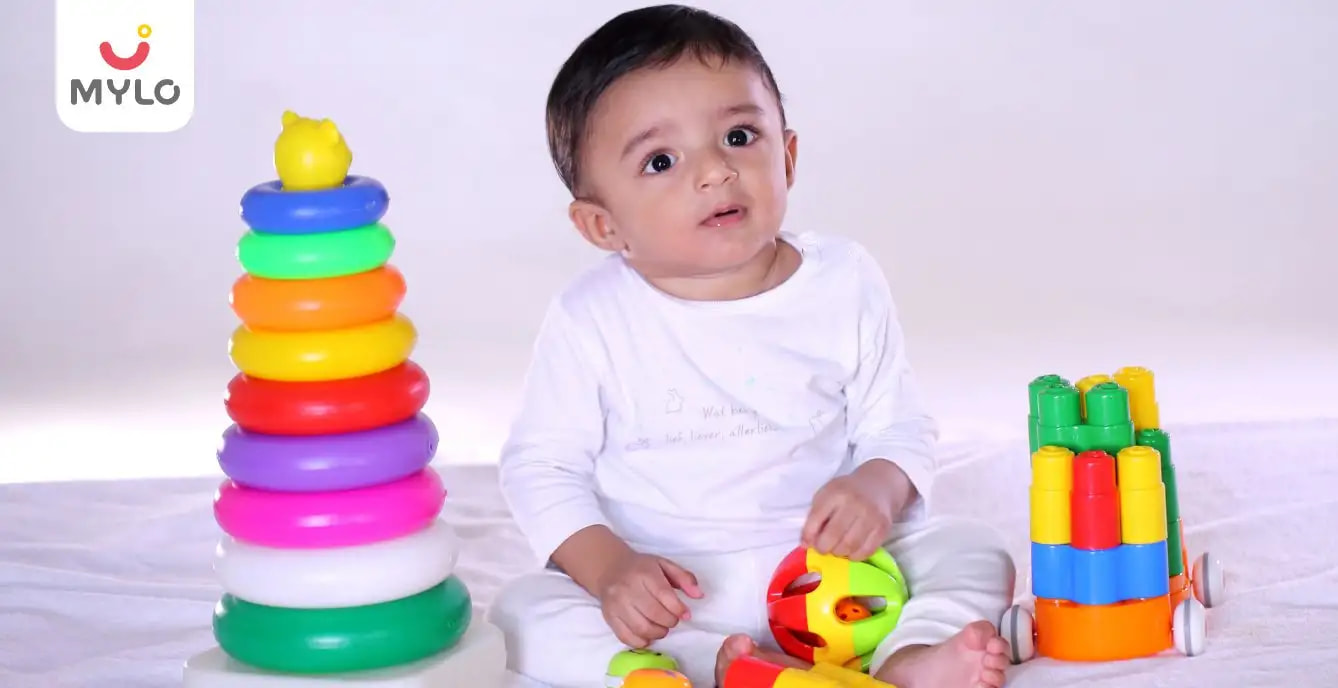
Growth Charts
Baby Milestones for Development, Growth & Health in the First Year
Updated on 5 March 2024
The first year of your baby’s life is very eventful and memorable. It is during this first year of infancy that your little bundle of joy begins to crawl and outgrow the cradle. What’s more? It passes in the blink of an eye: the first day you carry them home in your arms and a year later you are holding their hand as they take their first steps. As parents, you get the first-row tickets to all the baby milestones your little one will experience. And as your baby’s first teachers, you must aid in your baby development and growth.
In this article, we have prepared a detailed guide to baby development stages month by month that will prepare you for what’s to come next- all the major milestones and challenges. Also, there’s a baby milestones chart (baby development chart) that will help you glance at all baby development milestones in one place.
Baby Milestones: 1 to 3 Months
1. Baby Development
In the first three months of life, your baby will witness major growth spurts. So, keep watching those baby development stages. Within a few weeks, your little one will begin to notice objects, track objects with their eyes, lifting their head, smiling and turning in the direction of sound.
By the three-month mark, your baby should be able to lift the head 90 degrees, reach out for their favorite toys, laugh out loud, roll over and string together sounds like ‘ah-goo’. If your baby is lagging on most of these milestones, do consult your doctor.
2. Baby Growth
In the first week of arrival, your baby may lose weight. But he/she will soon make up for that initial weight loss by gaining at least 2-4 kgs of weight in the first three months. By the three-month mark, your baby should weigh around 5.8 kgs if a girl and 6.4 kgs if a boy.
When it comes to height, female babies should be about 60 cm or 23.6 inches long whereas male babies should be 61.5 cm or 24.2 inches long.
3. Baby Health
To fuel your little one’s growth, your baby’s feeding demands will increase by the end of the first month. If you’re breastfeeding, expect to feed your little one around 6-10 ten times a day. In case of formula milk, you can expect to feed every 3-4 hours over the day. Your baby will also be sleeping 14-16 hours a day, waking every 2-4 hours.
Keep an eye out for dry and flaky skin as it might be the early symptoms of infant eczema or cradle cap. And if your baby cries unconsolably for hours at end, it might indicate a case of colic. Don’t forget to discuss these symptoms with your doctors when you go for vaccinations.
In the first three months your baby will most likely receive the hepatitis B shot, the DTaP vaccine, Rotavirus vaccine, Pneumococcal conjugate vaccine, Polio vaccine and the Hib vaccine.
You may also like: Baby Milestones: A Week-By-Week Guide to Your Baby’s Development in the First Year
Baby Milestones: 4 to 6 Months
1. Baby Development
By 4 months, your baby will begin to differentiate between colours, discover voices and laugh out loud. He/she will also be able to track moving objects faster and even grab at them. The major milestone your baby will hit in the 6-month marker is grabbing objects very hard so save your hair and jewelry. Additionally, your little one should be able to rise up on their arms when placed on their tummy and roll over.
Most of the babies in this span like to make the most of their limbs and play with their fingers and toes, probably even mouth them. As your little one aces through these baby development stages month by month, he/she will also babble more sounds like ‘ga-ga-ga' or ‘ba-ba-ba'. Keep those ears open as the sweet calls of ‘Mama’ and ‘Dada’ are not very far away.
You may also like: Understanding Baby Sleep: 4-6 Months
2. Baby Growth
Your tiny munchkin may not seem so tiny by now as they have been gaining weight steadily, strengthening their bones and getting longer. By the 6-month marker, most babies have doubled their weight at birth. So, you can expect your baby girl to weigh around 7.3-7.5 kg and 7.9-8.5 for baby boys.
Whereas, their height is concerned, baby girls are around 25.75 inches or 65.7 cm long and baby boys measure 26.5 inches or 67.6 cm. Remember, if your baby doesn’t fall into this range and your doctor isn’t too concerned then you shouldn’t be either. Your little one may just be one-of-a-kind.
You may also like: Baby Weight Chart: An Indian Parent's Guide to Growth Patterns
3. Baby Health
During these baby development stages, your little one should ideally get at least 5-6 feeds of breastmilk or formula milk. You may notice that while the frequency of feeds may have reduced, the quantity has increased.
Your baby must also be awake for longer durations of the day and sleep around 10-12 hours at night and nap 3-5 hours in the day. Your baby is half way to a year already so if you’re thinking of introducing solid foods, remember your baby doesn’t require more than a tablespoon twice a day. Ideally, you should wait until 6 months before feeding solid foods.
During 4-6 months, your baby will most likely receive the remaining shots of Rotavirus vaccine, Pneumococcal conjugate vaccine and the Polio vaccine. Keep an eye out for sleeplessness, loss of appetite and irritability as some babies start teething during this phase. Additionally, watch out for cold, colic, stomach bugs, infant eczema and cradle cap.
You may also like: Most Important Vaccines for Indian Babies: Here's the Complete Chart
Baby Milestones: 7 to 9 Months
1. Baby Development
As the second half of your baby’s first year begins, your little one will become a baby on the go. He/she will be rolling back and forth, sit unsupported, pull up, clap and even crawl around the house. Your baby may surprise you with a ‘Mama’ or ‘Dada’ any day now as their communications skills expand.
Facial gestures like loud laughs, squeals and grins will also become a common appearance during your baby development month by month. Although all babies develop at different rates, they must achieve certain key baby development milestones by this stage. If your baby hasn’t started to move at all, grasp objects, babble or turn towards sounds, you may want to check in with your doctor.
2. Baby Growth
On the baby growth month by month front, your little one will continue to gain weight and length. By the nine-month marker, your baby girl should weigh around 8.2 kg and baby boys weigh 8.9 kg. On the length charts, your baby will fall somewhere between 25-30 inches or 63.5-76.2 cm.
Don’t worry if your little one is lagging behind on these baby growth stages as all babies follow their unique growth pattern. You can speak with your doctor just to put your worries to rest.
3. Baby Health
Now that your munchkin has crossed the six-month marker, it’s time to start solids! You can start by introducing 1-2 tablespoons of cereal, fruits or veggies, increasing gradually to 3-9 tablespoons. Try to stay away from cow milk, honey and fruits juice until your little one turns one.
Additionally, you can start giving your baby some water to sip on to reduce the risk of dehydration after checking with your doctor. Don’t forget your baby still needs breastmilk or formula 4-6 times a day. Your tiny one will sleep around 11 hours at night, without waking in the middle at all. He/she will stock up some energy for play time with about 2 naps during the day.
As you introduce solid foods, your baby may present symptoms like hives, skin rashes, sneezing or vomiting in case of a food allergy. So, watch out for those symptoms and consult your doctor instantly. Also keep an eye out for teething as it is most likely to begin within these months.
You may also like: How To Prepare Food For Your Infant/Toddler Safely?
Baby Milestones: 10 to 12 Months
1. Baby Development
With your baby soon gaining the toddler status, you will notice he/she is crawling, standing up, cruising and maybe even taking his/her first steps. As your little one advances through the baby development stages month by month, it may be time to baby-proof your house. Also, on the baby development stages agenda is clapping hands, waving bye-bye, raising arms to be picked-up and blowing kisses.
Around this time, separation anxiety may also kick in full-force. Additionally, you may notice your baby throwing tantrums like banging head, hair pulling, teeth grinding or rocking. Such a behaviour is usually triggered by stress, over-stimulation or a change in routine.
Your soon-to-be toddler may also finally say ‘Mama’ and ‘Dada’ if they haven’t already along with some others words. They are also likely to become copy cats and imitate your sounds and gestures.
2. Baby Growth
When it comes to watching baby growth stages, you will notice that your baby’s growth has begun to slow. As a result, the appetite will also decrease as your baby transitions from a voracious eater to a picky eater.
On the weight front, you can expect your baby girl to weight at max 11.3 kg and baby boy around 11.8 kg. Your baby may fall into the 71.8-80.2 cm length category by this time. Ideally, your baby’s weight should have tripled their birth weight, height should have increased 50% by this stage.
3. Baby Health
As your baby sprouts teeth, you may want to schedule their first dental visit and learn about their dental hygiene. By the time their first birthday approaches, you may want to wean your baby from the bottle and introduce them to a cup. You should feed your baby around half a cup of grains, fruits and veggies, dairy foods and proteins each day.
Do continue breastfeeding or formula milk until the first-year ends. Additionally, keep an eye out for motion sickness, sore throat, cold and hand, foot and mouth disease (HMFD).
Baby Milestones Chart
To help you track baby milestones by month, here is a baby development chart for you that shows common infant development milestones that babies reach each month during their first year. However, keep in mind that all babies are one-of-a-kind and grow at their own sweet pace. If your baby hasn’t reached a few milestones specified on this chart, he/she may achieve it the next month. Focus on progress, not delays.
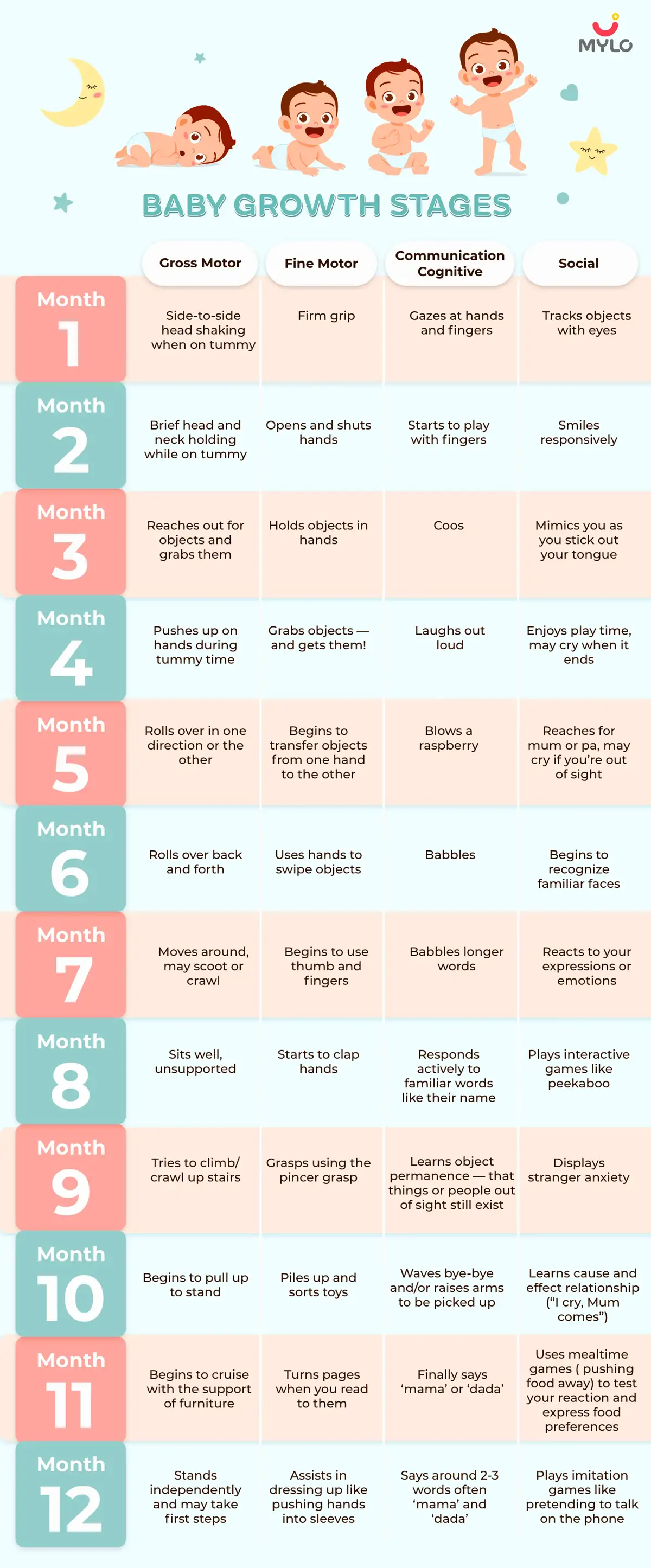
Final Thoughts
As you reflect on your baby's incredible journey through the first year of life, it's important to celebrate every milestone achieved. From those first adorable smiles to the wobbly first steps, each moment is a testament to your baby's growth and development. Remember, every baby is unique, and they will reach baby milestones at their own pace. Keep in mind that the love, care, and attention you provide are the most critical factors in your baby's healthy development. So, here's to many more milestones and memories in the years to come!
References
1. Dosman CF, Andrews D, Goulden KJ. (2012). Evidence-based milestone ages as a framework for developmental surveillance. Paediatr Child Health.
2. Misirliyan SS, Boehning AP, Shah M. (2023). Development Milestones. In: StatPearls [Internet]. Treasure Island (FL): StatPearls Publishing



Written by
Anupama Chadha
Anupama Chadha, born and raised in Delhi is a content writer who has written extensively for industries such as HR, Healthcare, Finance, Retail and Tech.
Read MoreGet baby's diet chart, and growth tips

Related Articles
Related Topics
RECENTLY PUBLISHED ARTICLES
our most recent articles

Festivals & Celebrations
The Ultimate Collection of International Women's Day Quotes
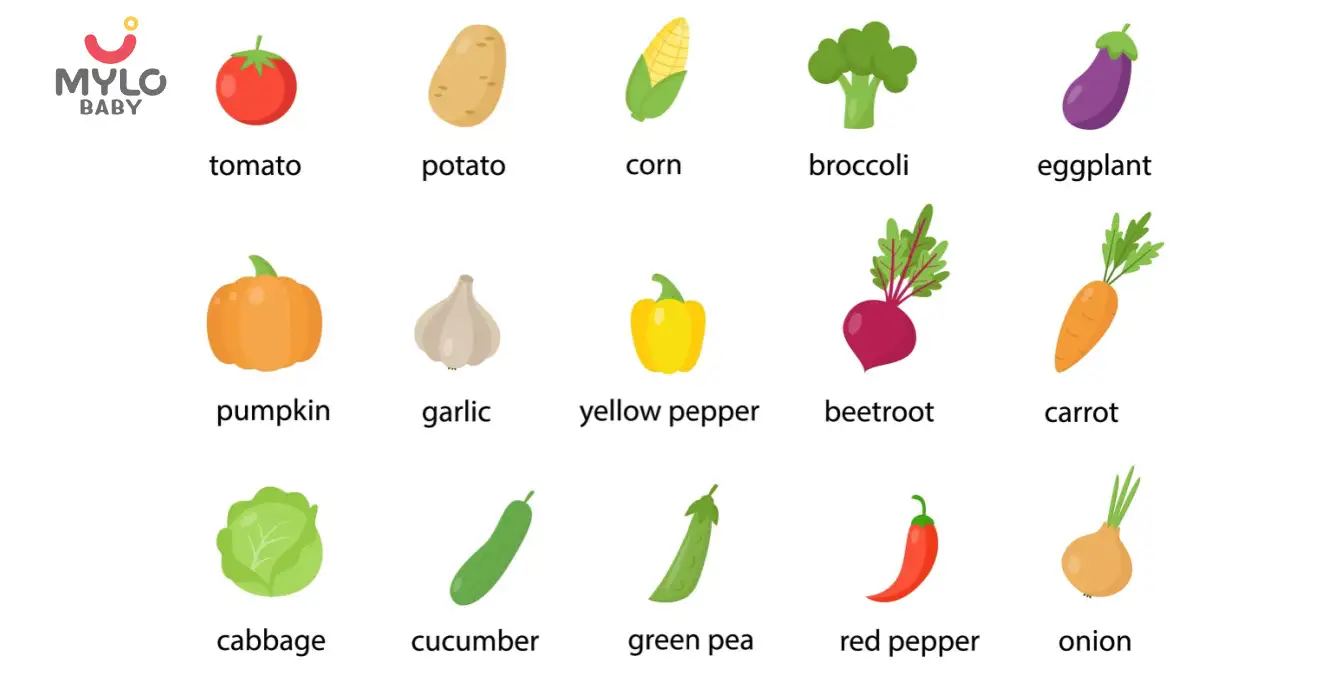
Education
The A-Z Guide to Identifying Vegetables Name in English for Children

Pregnancy Best Foods
Grapes in Pregnancy: The Ultimate Guide to Benefits & Precautions

Postpartum Exercise: What to Know About Exercising After Pregnancy
Growth & Development
Baby Crawling: A Parent's Guide to Baby's First Moves

Weight Loss
Postpartum Diet Plan: Your Postpartum Nutrition Guide
- The Ultimate Guide to Crafting the Perfect Baby Photoshoot
- Lupride Injection: How It Works and What You Need to Know
- Why are Some Women Recommended HCG Injection During Pregnancy?
- Sudden Infant Death Syndrome (SIDS): Meaning, Causes & Prevention
- Period After Abortion: What to Expect About Timing, Duration and Frequency
- Thumb Sucking: How to Help Your Child Break the Habit
- The Ultimate Guide on How to Shrink Ovarian Cysts Naturally
- Ashwagandha Benefits for Female & Male Fertility: How This Ancient Herb Can Help You Conceive
- What are the 12 things that parents can do with their baby in the first 12 months?
- The Lowdown on Cetirizine in Pregnancy: A Must-Read for Expecting Moms
- The Ultimate Collection of Paheliyan with Answer for Kids
- The Ultimate Guide to Abdominal Pain After Abortion Causes and Care
- Ovulation Kit 101: A Beginner's Guide to Tracking Fertility & Maximizing Your Chances of Conception
- Is Breast Pain after Abortion Normal? What You Need to Know


AWARDS AND RECOGNITION

Mylo wins Forbes D2C Disruptor award

Mylo wins The Economic Times Promising Brands 2022
AS SEEN IN

- Mylo Care: Effective and science-backed personal care and wellness solutions for a joyful you.
- Mylo Baby: Science-backed, gentle and effective personal care & hygiene range for your little one.
- Mylo Community: Trusted and empathetic community of 10mn+ parents and experts.
Product Categories
baby carrier | baby soap | baby wipes | stretch marks cream | baby cream | baby shampoo | baby massage oil | baby hair oil | stretch marks oil | baby body wash | baby powder | baby lotion | diaper rash cream | newborn diapers | teether | baby kajal | baby diapers | cloth diapers |



